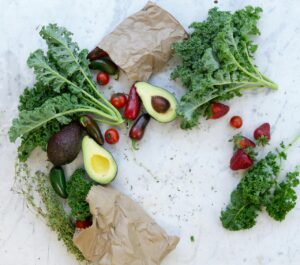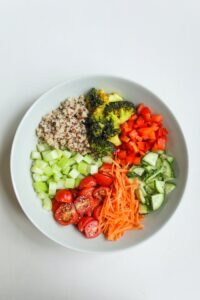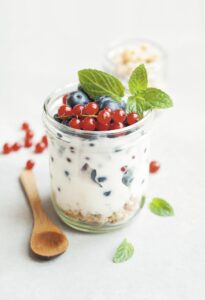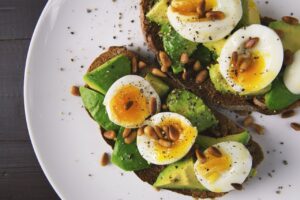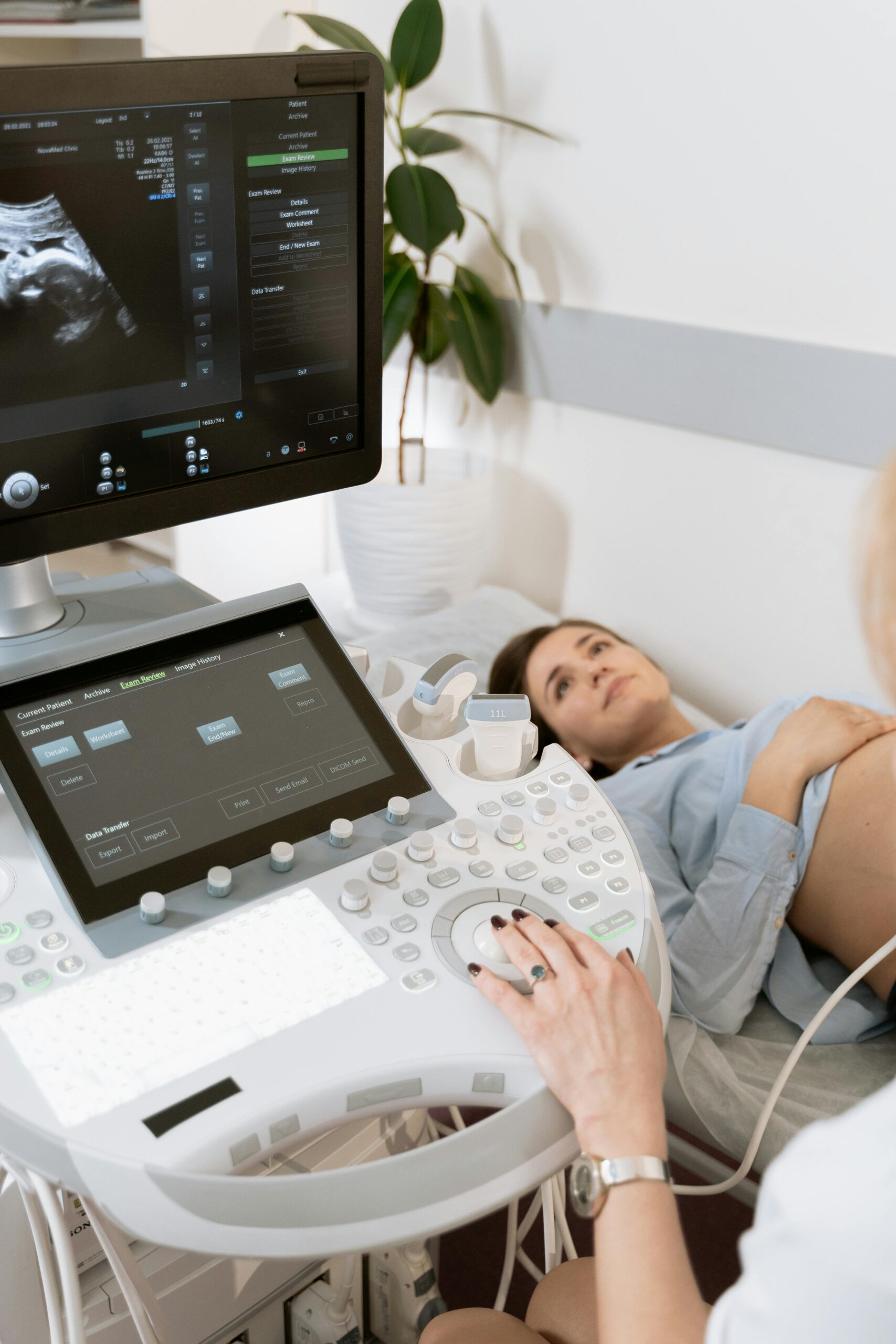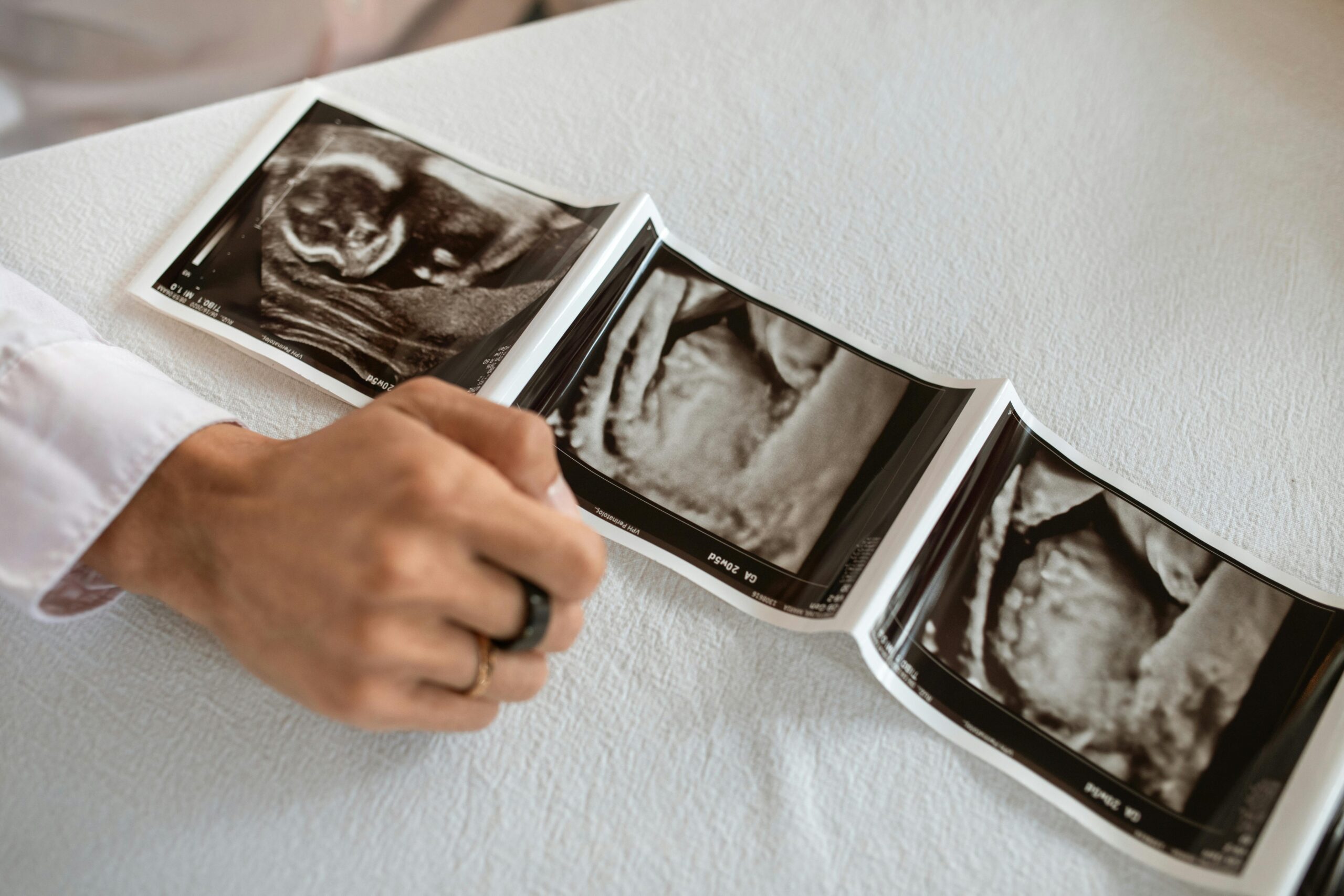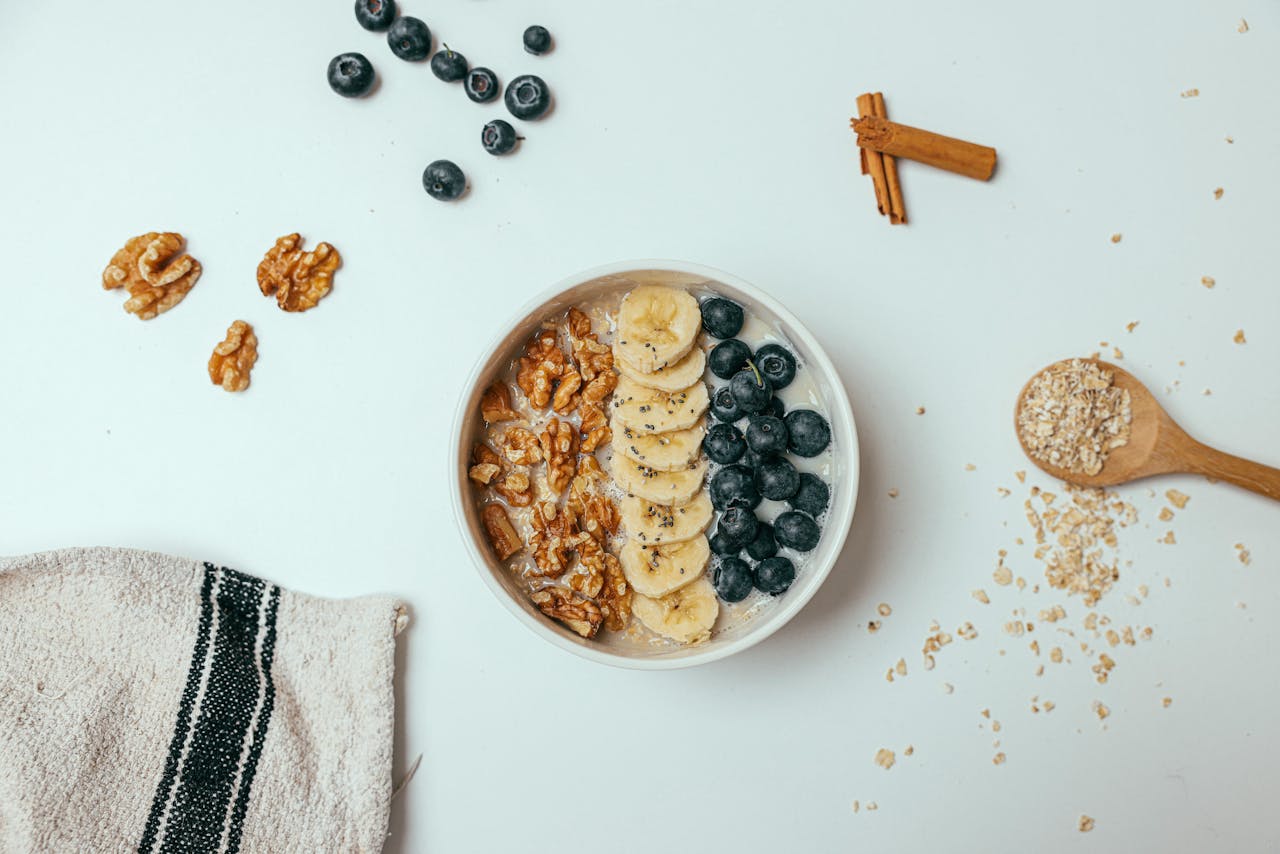Nutrition During Pregnancy: What to Eat for a Healthy Baby and Mom
Pregnancy is one of the most crucial times in a woman’s life when it comes to maintaining good health and well-being. The food you eat during this period doesn’t just nourish you—it also provides the essential nutrients your baby needs to grow and develop. Proper nutrition during pregnancy can help ensure a healthy pregnancy, reduce the risk of complications, and support the growth of a strong, healthy baby.
In this blog, we’ll break down the key nutrients you need during pregnancy, what foods to focus on, and tips for managing common pregnancy challenges like morning sickness and cravings.
Here are some tips that I followed when I was Pregnant. Hope it will help you too.
Why Proper Nutrition is Essential During Pregnancy
At first we have to know why good nutrition matters during pregnancy, A balanced diet during pregnancy is essential for several reasons:
- Supports Baby’s Growth and Development: The nutrients you consume directly contribute to the formation of your baby’s bones, brain, muscles, and organs.
- Prevents Complications: Proper nutrition helps reduce the risk of complications like gestational diabetes, preeclampsia, and low birth weight.
- Boosts Your Energy: Pregnancy demands more energy from your body, and a nutritious diet helps ensure you have the stamina to stay active and healthy.
- Promotes Healthy Weight Gain: Gaining the right amount of weight is crucial for both your health and your baby’s. Eating a well-balanced diet helps you manage weight gain appropriately.
Some Important Nutrients to Focus on:
During pregnancy, your body needs a variety of nutrients to support both you and your growing baby. Here are the most important ones to focus on:
-
Folic Acid (Folate)
- Why It’s Important: Folic acid is crucial for preventing neural tube defects, which affect the brain and spine. It plays a key role in the early development of the fetus.
- How Much You Need: Pregnant women should aim for at least 600 micrograms of folic acid daily.
- Foods Rich in Folic Acid: Leafy green vegetables (like spinach and kale), fortified cereals, legumes, citrus fruits, and avocados.
-
Iron
- Why It’s Important: Your body needs more iron during pregnancy to produce extra blood for both you and your baby. Iron helps prevent anemia, which can lead to fatigue and other complications.
- How Much You Need: Pregnant women need 27 milligrams of iron per day.
- Foods Rich in Iron: Red meat, poultry, fish, fortified cereals, beans, spinach, and lentils. Pair iron-rich foods with vitamin C (like citrus fruits) to improve absorption.
-
Calcium
- Why It’s Important: Calcium supports the development of your baby’s bones, teeth, heart, muscles, and nerves. If you don’t consume enough calcium, your body will take it from your bones to give to the baby, which can weaken your own bone health.
- How Much You Need: You need 1,000 milligrams of calcium daily.
- Foods Rich in Calcium: Dairy products like milk, cheese, and yogurt, as well as leafy greens, tofu, almonds, and fortified plant-based milks.
-
Protein
- Why It’s Important: Protein is essential for the growth of your baby’s tissues and organs, including the brain. It also helps with the development of your own tissues and muscles during pregnancy.
- How Much You Need: Aim for 70-100 grams of protein each day, depending on your weight and activity level.
- Foods Rich in Protein: Lean meats, poultry, fish, eggs, tofu, beans, nuts, seeds, and dairy products.
-
Omega-3 Fatty Acids
- Why It’s Important: Omega-3 fatty acids, particularly DHA, are essential for your baby’s brain and eye development. They also support a healthy pregnancy by reducing the risk of preterm birth.
- How Much You Need: Pregnant women should aim for at least 200 milligrams of DHA per day.
- Foods Rich in Omega-3s: Fatty fish like salmon, sardines, and trout, as well as flaxseeds, chia seeds, and walnuts.
-
Vitamin D
- Why It’s Important: Vitamin D works with calcium to support healthy bone development in your baby and helps strengthen your immune system.
- How Much You Need: Pregnant women need 600 international units (IU) of vitamin D daily.
- Foods Rich in Vitamin D: Fortified milk, fatty fish, eggs, and fortified cereals. You can also get vitamin D from sunlight exposure.
-
Fiber
- Why It’s Important: Many pregnant women experience constipation due to hormonal changes. A high-fiber diet can help keep digestion regular and reduce constipation.
- How Much You Need: Aim for 25-30 grams of fiber daily.
- Foods Rich in Fiber: Whole grains, fruits, vegetables, beans, and lentils.
Foods to Focus On During Pregnancy
Now that you know the key nutrients, let’s look at specific foods that you should include in your diet to ensure you and your baby are getting everything you need.
-
Leafy Greens: Spinach, kale, and broccoli are rich in folate, calcium, iron, and fiber. They are essential for your baby’s development and keep your digestion healthy.
-
Lean Meats and Poultry: These are excellent sources of iron and protein, which are vital for blood production and muscle development.
-
Dairy Products: Milk, yogurt, and cheese are rich in calcium, vitamin D, and protein, all of which are important for your baby’s bone and tooth development.
-
Eggs: Eggs are packed with protein, choline, and DHA, making them one of the most nutrient-dense foods for pregnant women. Choline is essential for brain development.
-
Fish: Fatty fish like salmon and sardines provide omega-3 fatty acids and DHA, which are important for brain development. Be sure to avoid fish high in mercury, such as swordfish and shark.
-
Whole Grains: Brown rice, quinoa, oats, and whole wheat bread are rich in fiber, iron, and B vitamins. They help keep your energy levels steady and prevent constipation.
-
Berries: Blueberries, strawberries, and raspberries are packed with vitamins, antioxidants, and fiber. They help protect your cells and support your immune system.
-
Nuts and Seeds: Almonds, chia seeds, and walnuts provide healthy fats, protein, and fiber. They are easy to snack on and help keep you full and energized.
-
Legumes: Lentils, chickpeas, and beans are excellent sources of folic acid, protein, and iron. They’re also a great plant-based protein option for vegetarian or vegan moms-to-be.
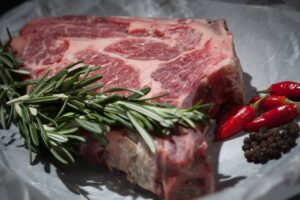

Foods to Limit or Avoid During Pregnancy
While there are many nutritious foods to enjoy during pregnancy, there are some you should limit or avoid for safety reasons:
- Alcohol: Drinking alcohol during pregnancy can lead to developmental problems for your baby. It’s best to avoid alcohol entirely.
- Caffeine: Limit your caffeine intake to about 200 mg per day (roughly one 12-ounce cup of coffee). Too much caffeine can increase the risk of miscarriage and preterm birth.
- Raw or Undercooked Meat and Fish: These foods can carry harmful bacteria or parasites, such as listeria and toxoplasmosis, which can cause infections.
- High-Mercury Fish: Avoid fish with high mercury levels like swordfish, king mackerel, and shark, as mercury can harm your baby’s developing brain and nervous system.
- Unpasteurized Dairy and Soft Cheeses: These can contain harmful bacteria, such as listeria, which can lead to infections.
- Raw Eggs: Can carry the risk of salmonella.
Tips for Eating Well
-
- Eat Small, Frequent Meals: This can help with nausea and keep your energy levels stable
- Stay Hydrated: Drink plenty of water throughout the day.
- Take Prenatal Vitamins: These can help ensure you’re getting the essential nutrients.
- Listen to Your Body: Eat when you’re hungry and stop when you’re full.
- Plan Balanced Meals: Try to include a variety of foods from all food groups.
Healthy Snack Ideas
-
- Fresh Fruit: Easy, nutritious, and full of vitamins.
- Yogurt with Berries: A great source of calcium and antioxidants.
- Nuts and Seeds: Packed with protein and healthy fats.
- Carrot Sticks with Hummus: A tasty and nutritious snack full of fiber and protein.
- Whole Grain Crackers with Cheese: Provides both fiber and calcium.
Drinking plenty of water is essential during pregnancy. Aim to drink at least 8-10 glasses of water a day. Staying hydrated helps with digestion, keeps your energy levels up, and supports your increased blood volume.
Last but not the least, Enjoy your Pregnancy, Don’t stress, Don’t overthink. It’s a natural Process, you’ll be alright. Just don’t lose Confidence.
Remember, every pregnancy is unique, so consult with your healthcare provider or a nutritionist to ensure you’re meeting your specific needs. Eat well, stay hydrated, and enjoy this special time as you nourish both yourself and your baby.
Welcome to A Mug Of Coffee
I am a mom with a young child, and I love coffee. Being a new mom was really hard, and I went through a lot. That’s why I created a special coffee to help other pregnant women, those trying to get pregnant, and new moms who are struggling. I love coffee so much that I’ve done a lot of research on it and can talk about it for hours. Whether you’re a mom or just love coffee, I think you’ll find something you like. Enjoy!
